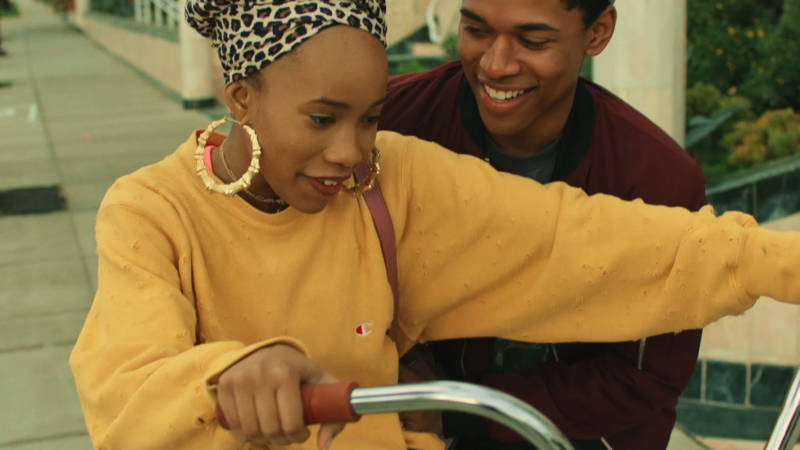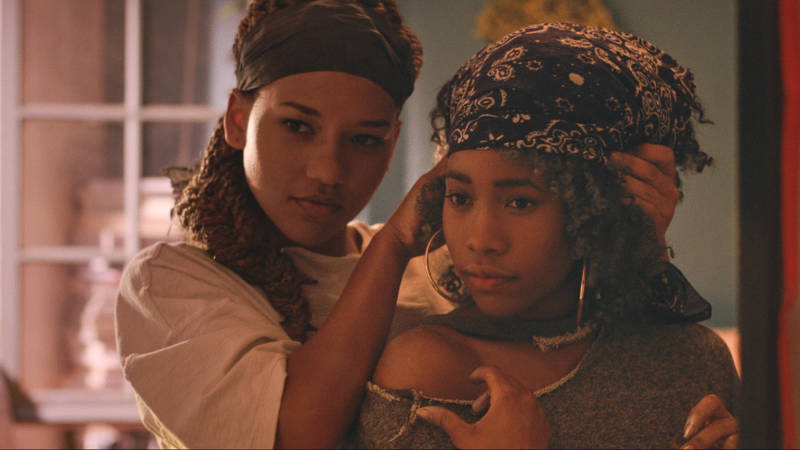Editor’s Note: Behind the Lens is a digital video series featuring bold California indie filmmakers pushing the boundaries of their craft. Each episode captures the personal experiences that inform a filmmaker’s work and the risks they take to bring stories to the screen.
Nijla Mu’min didn’t grow up with much media that reflected her experience as an African-American Muslim woman, so she created her own. Her semi-autobiographical film, Jinn, follows a teen girl named Summer as she navigates friendship, love, sexuality—and all the confusing territory that comes with being a teenager—while adjusting to her mom’s newfound Islamic faith. “I love the African-American Muslim community I was born into, but just like many teenage girls and teenagers, I began to question a lot as I got older,” says Mu’min, who was born and raised in the East Bay and attended a mosque in East Oakland.
After Summer’s mom converts to Islam, her expectations of her daughter clash with Summer’s lived reality as a high schooler in Los Angeles, where Mu’min shot the film. Questions of family and belonging, faith and community arise as Summer attempts to balance her religion and the pressures of being a teen—something Mu’min went through as a young girl in the Bay Area, though she says her parents weren’t quite as strict. Mu’min, whose directorial credits include Ava Duvernay’s hit series Queen Sugar on Oprah’s TV network, addresses these threads of inquiry with skill; her characters don’t have all the answers, and the messy ways they respond to their complex circumstances makes them feel all the more human.
Jinn enjoyed a successful run on the festival circuit, picking up awards at SXSW and the Blackstar Film Festival. Following a sold-out Oakland premiere last month at the Matatu Festival at Grand Lake Theatre, Jinn hits theaters on Nov. 15. KQED Arts sat down with Mu’min to learn more about her first love of poetry, the motivations behind her filmmaking and how more diverse representation in Hollywood can lead to better, more nuanced storytelling.



